Hooray for Hollywood?
While preparing to film Babylon years back, we’re told Damien Chazelle would regularly home-screen 35mm prints of classic Hollywood epics that were hugely ambitious and tried to expand the form into new shapes—what Pauline Kael called “film follies,” like D.W. Griffiths’ Intolerance, or Orson Welles’ Touch of Evil, or Robert Altman’s Nashville. The goal was “to make the great American epic about early Hollywood,” according to production notes.
At over three hours, Chazelle’s Babylon emerges as a new form, all right, but it’s hard to say whether it’s classic or folly. Along the way, it takes on so much overstuffing and weight and unnecessary baggage that it threatens to collapse amid its own elephant droppings. If Babylon had gone on a strict script diet, and shed a tonnage of spectacle, cautionary asides, self-indulgent love-of-cinema setups and homages, and tried to wrest an honest story about real characters, or even Hollywood victims, from its raw elements, it might’ve lived up to its cinematic promise.
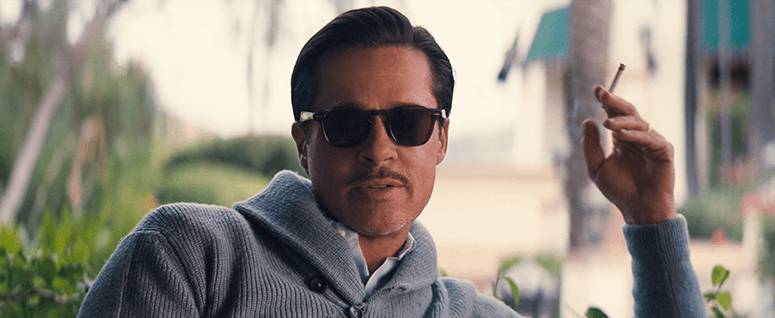
The opening is the cinematic promise: a film about 1920s La-La Land that takes its time setting up a Gatsby-like mansion orgy in the Hollywood hills, where our three principals—Brad Pitt (as aging film star Jack Conrad), Margot Robbie (determined ingénue Nellie LaRoy) and Diego Calva (Mexican houseman Manny Torres)—do their respective things amid an unspooling vision of every imaginable nasty, guilty pleasure (chiefly, drugs, sex, and booze, though some dwarves are involved). We don't even see the opening title credit until 30 minutes in; we’re too busy gawking at all the gilded interiors and mounds of coke and crazy jazz playing and various decadences to even notice.
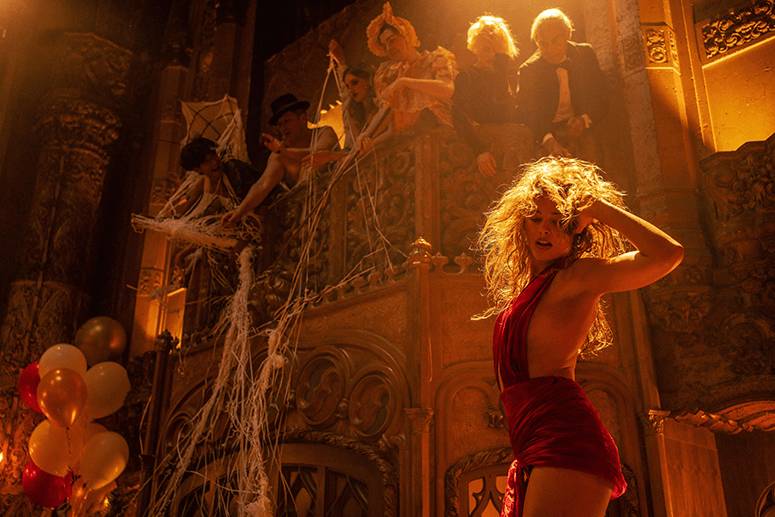
But as the tale unfurls, we see it’s more of an overture to the passage of Hollywood from the Silent Era to the Talkies; less a heartfelt focus on our principals and more of an impassioned mash note to the industry. Not a love letter exactly, but a sloppy-wet tongue-bath of an angry kiss to Tinseltown that may make you wonder how Chazelle has been dealing with success since La La Land.
There’s a thesis involved, and Chazelle freely cribs from the best parts of Kenneth Anger’s Hollywood Babylon and The Day of the Locust (both about Hollywood scandal and appetites) to deliver it, and there are some great sequences: Robbie’s Nellie LaRoy squeezing out take after take of a perfect single tear in a silent film western, as director Ruth Adler (played with great humor by Chazelle’s wife, Olivia Hamilton) keeps the camera rolling; an early “sound sync” scene where every element—camera, actress, miking, lighting—has to be in ridiculously perfect synchronization in order to get the shot, leading up to a perfect outburst of onset mayhem. Another crazed shoot in a desert on the outskirts of LA involves the hunt for a working camera amid a fading “golden hour.” And so goes the love affair with Hollywood that filmmakers love to capture and send giftwrapped to the industry during Oscar nomination time. But while Tarantino’s Once Upon a Time in Hollywood and Chazelle’s main model here, P.T. Anderson, conveys a nostalgic, even elegiac tone about Hollywood in films like Licorice Pizza and Boogie Nights, Babylon feels like crunching tin at times.

For every legitimately transcendent movie moment—Li Jun Li emerging from a writhing house orgy as tuxedoed Lady Fay Zhu, hushing the crowd with her Hollywood glamour lighting and purring about her girlfriend’s, well, pussycat—there’s a scene of an elephant unloading buckets of poop, or Margot Robbie projectile hurling, or a large guy eating live rats, or a grisly rattlesnake attack, or Tobey Maguire featured in some kind of twitchy animal performance. It’s all over the map, and way over the top—which, of course, one expects from the title and the subject matter. Billed as “a tale of outsized ambition and outrageous excess,” Babylon looks at an industry finding its legs in a desert, realizing there are no limits (thus the depravity, drugs, and open sexuality that had yet to be policed by the coming Hays Production Code in the studios), and going for broke.
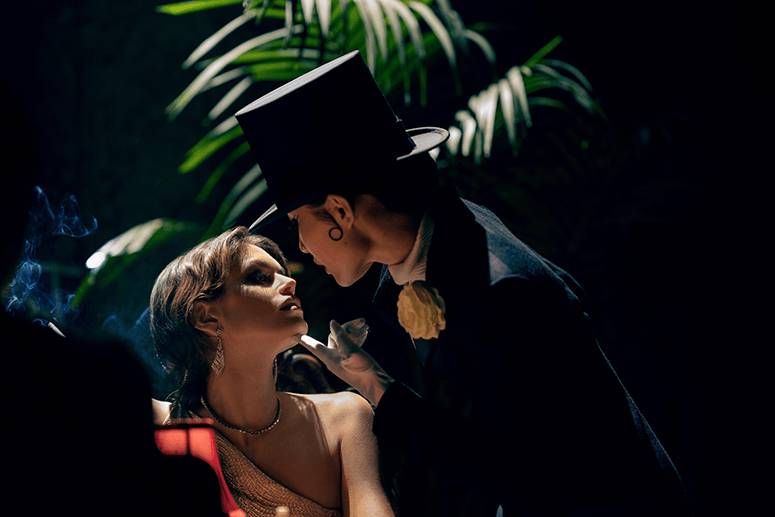
But the story would be better served by focusing a little more closely on, say, Nellie (Robbie here does a lot of the film’s heavy lifting in early scenes, and gets precious little character development to show for it). Pitt basically plays a variation of himself, and strains for tragic dignity in his fading film star. Calva becomes the soulful, wide-eyed viewer—us—taking it all in, with images indelibly sizzled onto his brain forever. A few more drafts might have excised some of the excess in this script and done a deeper dive into their relationships, who they really were.
And so goes the love affair with Hollywood that filmmakers love to capture and send giftwrapped to the industry during Oscar nomination time. But while Tarantino’s Once Upon a Time in Hollywood and Chazelle’s main model here, P.T. Anderson, conveys a nostalgic, even elegiac tone about Hollywood in films like Licorice Pizza and Boogie Nights, Babylon feels like crunching tin at times.
But that’s asking a lot of a movie that also wants to introduce one of Chazelle’s favorite tropes—the dignified jazz player—in the shape of trumpeter Jovan Adepo (Sidney Palmer), an “artist” who is drawn into the web of Hollywood fame and, for his troubles, is asked to smear on coalface for a shoot in order to not appear “mixed race.” It’s genuinely shocking to see Palmer wearing coal as he plays his solo, but I also couldn’t help feeling the scene exploits the outrage a little bit in order to get a point across.
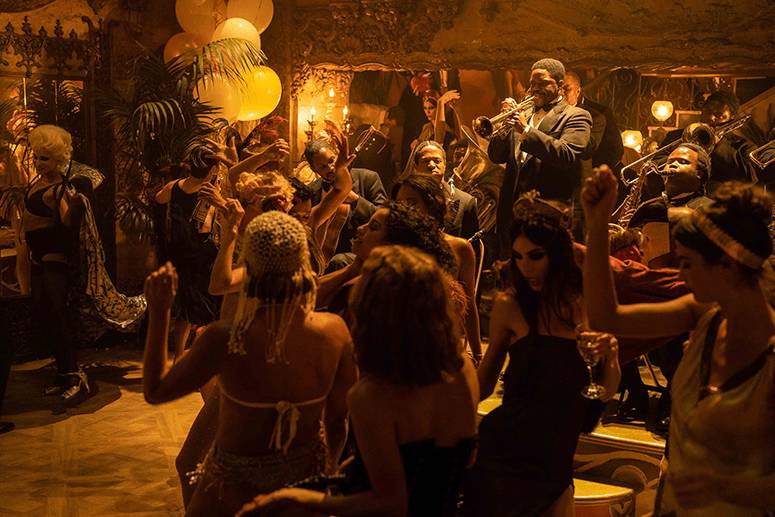
All these plates spinning at one time, and director Chazelle also weaves in a theme about art vs. popcorn entertainment in Hollywood (by “weaving in,” I mean he has characters say pretty much those actual words); and he has a baffling coda involving Singin’ in the Rain, the 1952 musical from which the film borrows many of its plot points, including elocution lessons for a Jersey-accented actress, and a painful transition from Silent Film to Talkies that ruined careers. As though we hadn’t picked up on the connection earlier, he shows us actual bits of the Gene Kelly movie—with Manny in the audience bawling his eyes out. Then there’s an extended montage of Hollywood clips from George Méliès to Kubrick that seems inserted by Chazelle just to remind us of the “magic” of filmmaking.
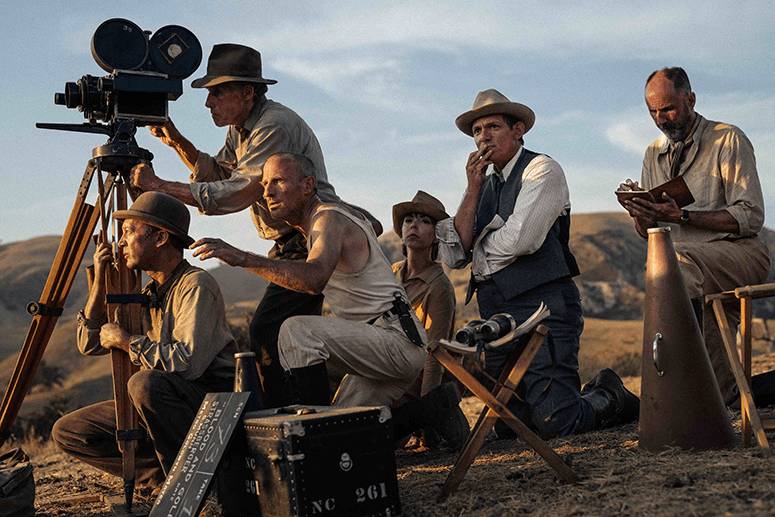
The other fetishized film here is Boogie Nights, and you can see Chazelle adores those long shots (as with Bill Macy’s silent suicide), and its commentary on a changing industry (porn substituting for Hollywood), and the spectacle of two dudes trying to do a shady deal with a drugged-out weirdo while someone loudly expectorates/pops off firecrackers at random intervals nearby.
So yes, excess is piled upon excess, and Babylon, at three-plus hours, ends up a one-of-a-kind circus curio in the realms of cinematic hell. It’s a (lengthily) entertaining, rambling shaggy-dog tale, and while some of it is crazy good, some of it is just crazy. But it is eye-popping, for sure. And like early Hollywood, or a drunken pitch by Jack Conrad, it shows what happens when grand ambition and unlimited amounts of money are combined with nothing much to say.
* * *
Babylon is in cinemas on Feb. 1, released by Paramount Pictures.


